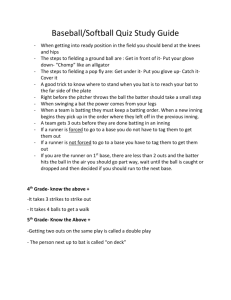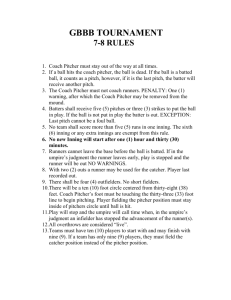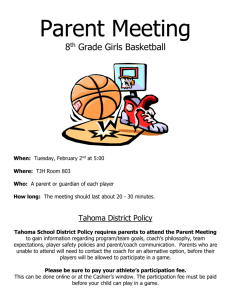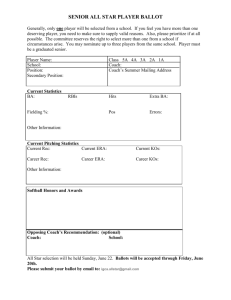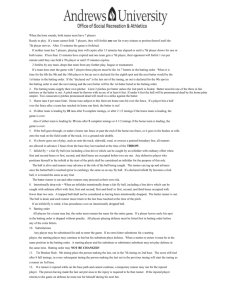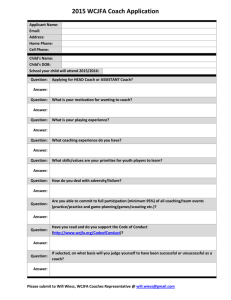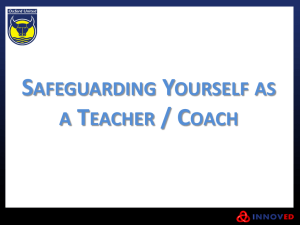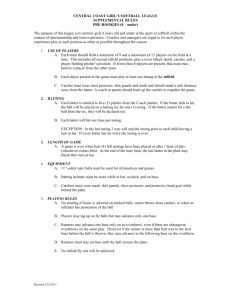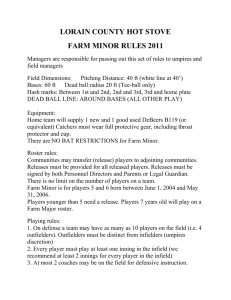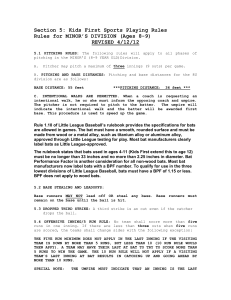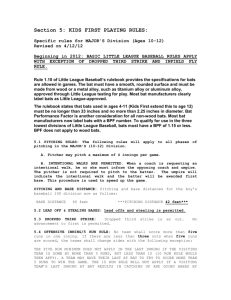COMPETITIVE BASEBALL COACH PITCH SPECIFIC RULES
advertisement
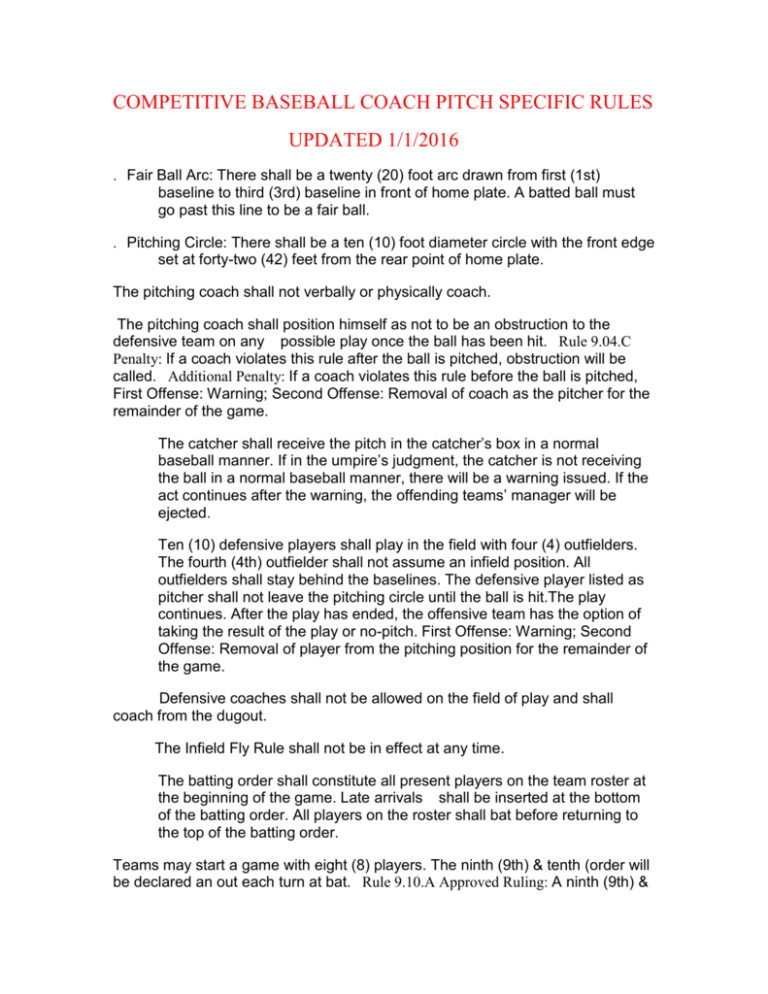
COMPETITIVE BASEBALL COACH PITCH SPECIFIC RULES UPDATED 1/1/2016 . Fair Ball Arc: There shall be a twenty (20) foot arc drawn from first (1st) baseline to third (3rd) baseline in front of home plate. A batted ball must go past this line to be a fair ball. . Pitching Circle: There shall be a ten (10) foot diameter circle with the front edge set at forty-two (42) feet from the rear point of home plate. The pitching coach shall not verbally or physically coach. The pitching coach shall position himself as not to be an obstruction to the defensive team on any possible play once the ball has been hit. Rule 9.04.C Penalty: If a coach violates this rule after the ball is pitched, obstruction will be called. Additional Penalty: If a coach violates this rule before the ball is pitched, First Offense: Warning; Second Offense: Removal of coach as the pitcher for the remainder of the game. The catcher shall receive the pitch in the catcher’s box in a normal baseball manner. If in the umpire’s judgment, the catcher is not receiving the ball in a normal baseball manner, there will be a warning issued. If the act continues after the warning, the offending teams’ manager will be ejected. Ten (10) defensive players shall play in the field with four (4) outfielders. The fourth (4th) outfielder shall not assume an infield position. All outfielders shall stay behind the baselines. The defensive player listed as pitcher shall not leave the pitching circle until the ball is hit.The play continues. After the play has ended, the offensive team has the option of taking the result of the play or no-pitch. First Offense: Warning; Second Offense: Removal of player from the pitching position for the remainder of the game. Defensive coaches shall not be allowed on the field of play and shall coach from the dugout. The Infield Fly Rule shall not be in effect at any time. The batting order shall constitute all present players on the team roster at the beginning of the game. Late arrivals shall be inserted at the bottom of the batting order. All players on the roster shall bat before returning to the top of the batting order. Teams may start a game with eight (8) players. The ninth (9th) & tenth (order will be declared an out each turn at bat. Rule 9.10.A Approved Ruling: A ninth (9th) & tenth (10th) player and all subsequent players may be added to the bottom of the batting line-up as soon as they become available. Teams may use free substitution on defense but the batting order shall remain the same. Bunting shall not be allowed. The batter shall receive a maximum of six (6) pitches or three (3) swinging strikes. A batter that has received less than six (6) pitches and has a count of two (2) swinging strikes shall have his turn at bat extended on foul balls up to the six (6) pitch limit. NO INTENTENAL WALKS Runners shall not lead-off or steal bases. A runner is out for leaving the base before the ball is hit or reaches home plate. A courtesy runner for catcher of record only the previous inning may be used. The courtesy runner shall be the player that made the previous out. If no outs have been recorded in the game, the courtesy runner shall be the previous batter not on base. If the team batting has not played defense yet and a courtesy runner is used for a player, the player that was run for must assume the catching position the next inning. This scenario only applies in the first inning for the visiting team. A team may score a maximum of seven (7) runs per inning, including the last inning or record three (3) outs. Umpires shall call “Time” after every play and declare the ball dead. “Time” shall be called as soon as the all runners are not attempting to advance. “Time” does not have to be called by the defense for the purpose of this rule. When a runner stands off a base and “jukes” or “feints” back and forth, this is to be interpreted, as “not attempting to advance” and “Time” shall be called. When a batted ball hits the Pitching Coach, the following shall apply: If in the umpire’s judgment, the coach did not make a legitimate attempt to avoid contact, the batter is declared out and no runners shall advance. If in the umpire’s judgment, the coach did make a legitimate attempt to avoid contact, the ball becomes dead and a no-pitch is declared. The Pitching Coach must be an adult.
